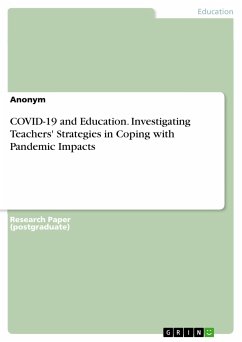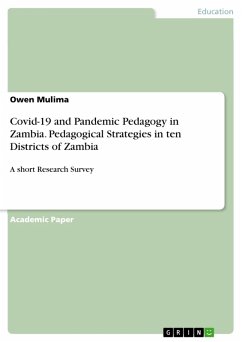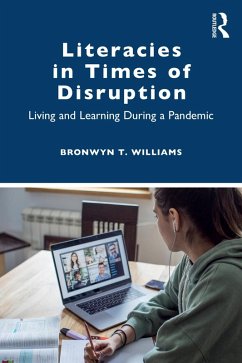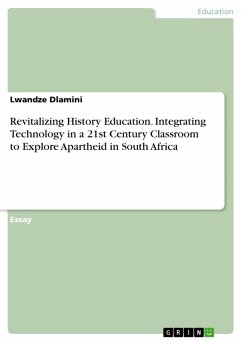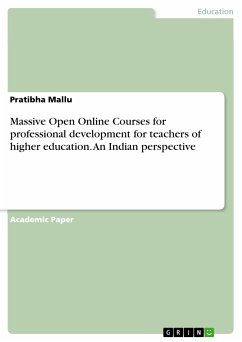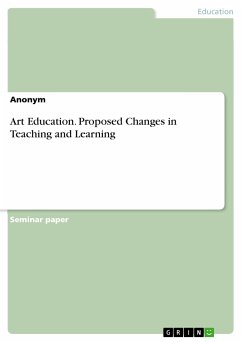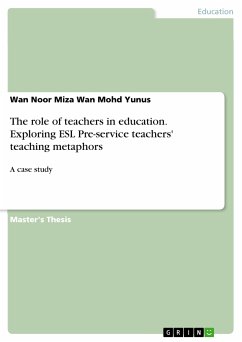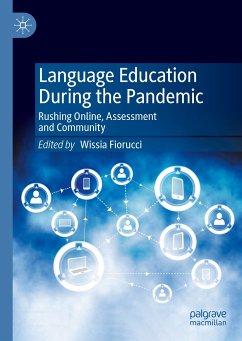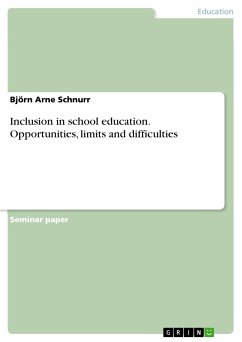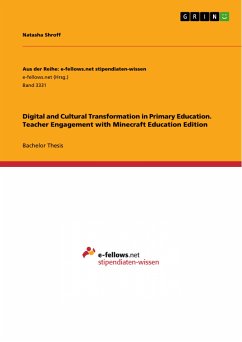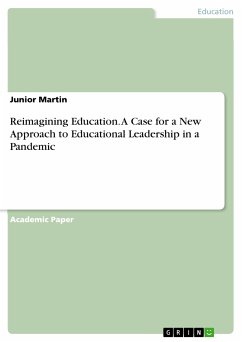
Reimagining Education. A Case for a New Approach to Educational Leadership in a Pandemic (eBook, PDF)

PAYBACK Punkte
0 °P sammeln!
Academic Paper from the year 2022 in the subject Pedagogy - School Pedagogics, grade: higher education, , course: Educational Leadership, language: English, abstract: In the Caribbean, school closures have left 7 million learners and over 90, 000 teachers across 23 countries and territories struggling to identify sustainable responses to the catastrophe caused by the covid-19 pandemic. Academic leaders across the world have responded to the crisis by closing institutions, canceling face-to-face activities and moving their educational and related activities online. Academic leaders are therefor...
Academic Paper from the year 2022 in the subject Pedagogy - School Pedagogics, grade: higher education, , course: Educational Leadership, language: English, abstract: In the Caribbean, school closures have left 7 million learners and over 90, 000 teachers across 23 countries and territories struggling to identify sustainable responses to the catastrophe caused by the covid-19 pandemic. Academic leaders across the world have responded to the crisis by closing institutions, canceling face-to-face activities and moving their educational and related activities online. Academic leaders are therefore expected to play a crucial role in the management of an appropriate response to the crisis at their institutions. While institutions are forced to function in an environment of uncertainty and growing intensity of the novel coronavirus pandemic, academic leaders can be credited with making the decision of shifting towards remote learning (Fernandez & Shaw 2020). This massive shift towards pivoting to remote learning is a demonstration that academic leaders are resolute in embracing the transformation of academia to a more modern system. In the context of this change, it is anticipated that the recovery period and beyond will clearly require an evolution of leaders who are more prepared to manage crises while advancing the technology agenda. The process of reimagining education, therefore, is a call for academic leaders to successfully embrace change management, master crisis management, and demonstrate resilience in an effort to successfully lead the recovery process.
Dieser Download kann aus rechtlichen Gründen nur mit Rechnungsadresse in A, B, BG, CY, CZ, D, DK, EW, E, FIN, F, GR, HR, H, IRL, I, LT, L, LR, M, NL, PL, P, R, S, SLO, SK ausgeliefert werden.




